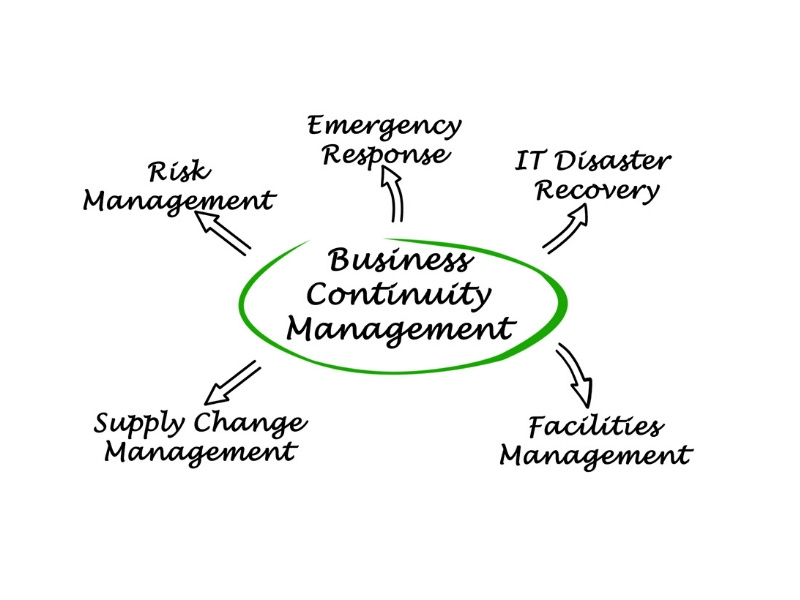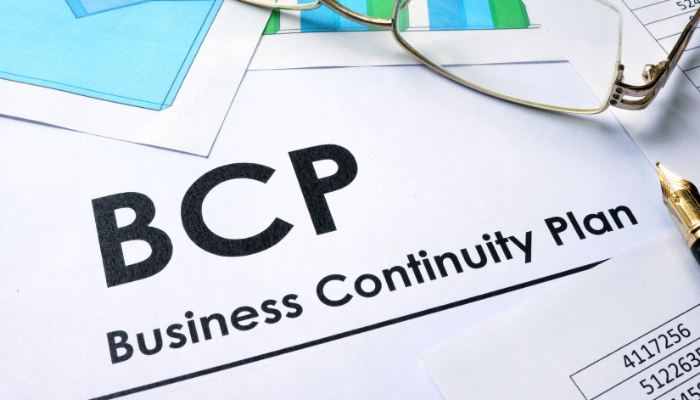The COVID-19 pandemic spreading across Australia has the potential to impact millions of people. Major cities across Australia have come to a standstill. School and public events from sport to entertainment are being cancelled or postponed.
The travel industry in particular – including airlines, passenger cruise ships, hotels and restaurants – are starting to take a big hit to their bottom lines. This also includes businesses that support the travel industry. The economic effects of the COVID-19 pandemic may potentially be felt for years, as the flow-on effects spread to other industries.
In addition to the global pandemic, in recent years Australia has also faced natural disasters, such as fires and floods. If you are a small to medium business owner, have you given much thought to your Business Continuity Plan (BCP)? In these uncertain times, businesses need to not only plan for but actually practice their Business Continuity Plan.
What is a Business Continuity Plan (BCP)?
A BCP is a written document that spells out what happens to your business in the unlikely event of a disaster. It answers all of the “What if we can’t…” questions applicable to your business. The word disaster can mean different things to different businesses. Perhaps it could relate to fire or flood, or loss of access to your physical office for a period of time. It could also be used when key personnel are unable to work, or key systems or processes are not available for a multitude of reasons.
A BCP ensures that no one really has to think too much if and when it needs to be acted upon, and ensures that your business can continue to function in the event of a disaster. It’s important to give some very real consideration to keep your businesses running in unusual circumstances, especially in the current times.

Top 6 Things to Consider for your Business Continuity Plan
1. Physical Location
Where do you and your staff go if you do not have access to your regular business premises? Given the current lockdown situations, working from home is the main option for most staff. Make sure staff understand their requirements when working from home.
2. Computer Systems
Who has access to what systems? If you cannot be at your regular desk, using your regular computer, can you still access the necessary software, applications, documents, files, financial data and information you need to keep your business running?
Does every staff member have a computer at home that they can use? Can they take their laptops home from work? Do you have backups on removable hard drives or in cloud storage locations of your key data, including your financial data, client data, supplier data and staff data?
4. Physical files, books, documents and information
Do you or your staff need to have some physical documents at their fingertips? Where is the little book that you keep in a secret bottom drawer in which you have written all of your key login ids and passwords?
5. Communication
How will you communicate with your staff, your clients, your customers, your buyers and suppliers if you cannot be at your regular physical location? Can you forward your main office phone number to your mobile, or to a phone app on your or your team’s laptops? Make sure you familiarise yourself with one of the many remote video conferencing services.
6. Stock Control and Inventory Management
What happens if you cannot access your warehouse or factory? What happens if your suppliers cannot access their warehouse or factory? How much “stock on hand” should you have at any one time? How much “stock on hand” should you be prepared to have if you can see some potential major events on the horizon? Do you ramp up production “just in case” or immediately cease all production?
7. Finances
Do you have funds and insurance immediately available to cover unexpected downtime? Payroll, suppliers and bills: costs will keep coming in. Do you have some kind of emergency fund or perhaps a flexible line of credit or overdraft arrangement with your bank? Make sure you are familiar with all the government grants available and apply as soon as possible.
A Business Continuity Plan that has been planned, considered, thought out and practised will make things so much easier in the event of unforeseen and potentially disastrous business circumstances.
Obviously, the health and wellbeing of yourself and of your staff is the main priority, and with a BCP in place, you can begin to protect the health of your business too.
Given that there are potentially difficult times on the horizon. At Acacia, we recommend that you spend some time immediately and create a Business Continuity Plan for you, your staff and your business.
At Acacia, we are taking our own advice.
We have a BCP, and we’ve tried and tested how we as a business will continue to function during and after the COVID-19 pandemic. Irrespective of our physical location and that of our individual staff members, Acacia will be functioning just as we always do.
Our staff, our systems, our processes – including our IT systems and our telephones – are ready to continue to help, support and provide our clients with everything that we normally do.
We may or may not physically attend your site, nor you attend ours, over the coming weeks and possibly even months, but we can do almost everything remotely via the internet.
Acacia Consulting Services is open for business !
If we can assist you with any of the above, or any other queries you may have with regard to your business operations, please Contact Us or call us on phone +61 3 8560 5220.


